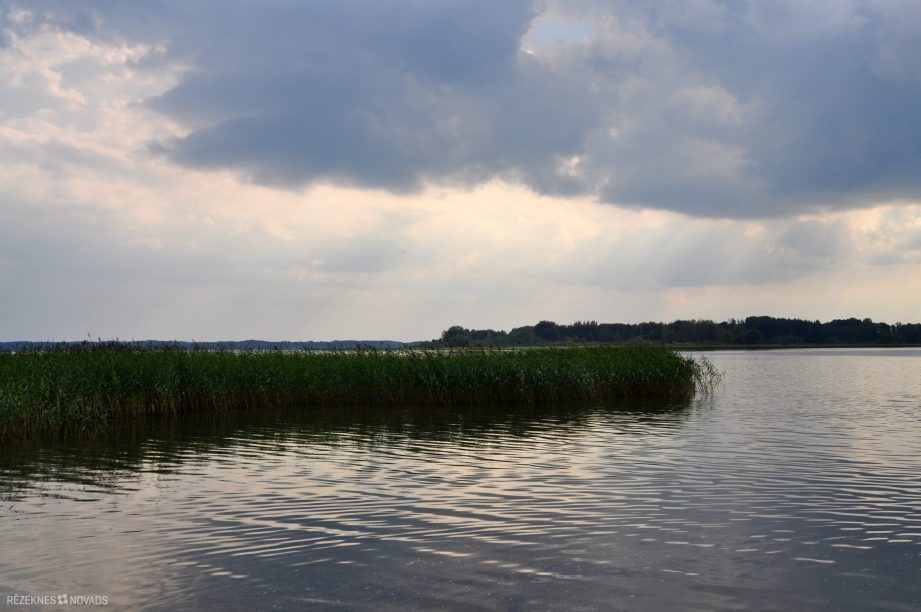The death of eels and Keepers in Razna Lake was caused by a set of factors including weakened immunity

In analysing the results of the virological, bacteriological, myological, parasitological laboratory examinations carried out on behalf of the Nature Protection Administration (Administration), the scientific institute of food safety, animal health and the environment “BIOR” (BIOR) concluded that the fish had died due to the weakened immunity caused by viruses, which had been affected by several factors.
In order to carry out full research, THE dead fish and live eels submitted by THE BIOR administration also carried out their own control by collecting samples of eel. In its opinion, BIOR notes that the specific disease agents, parasites and bacteria are not included in the list of common diseases. The Food and Veterinary Service certifies that the eel herpesvirus-1 found in samples has not been detected in Latvia so far and the virus is not dangerous to human health, but this may cause damage to the eel population.
“Fish damage in natural waters has also been observed in Latvia and elsewhere in the world. In order to better understand the situation of the previous year and prevent the recurrence of such situations in the future, it is important to gather up-to-date information on the ecological quality of the Lake Razna lake more often than currently (every two years), so we have turned to“ Latvian Environment, Geology and Meteorology Centre ”(LVGMC) with a request to ensure the monitoring of the water quality of Razna lake every year and the collection of samples every three months,” explains Gita Strode, Director of the Department of Environmental Protection.
Currently, the proposal is not supported and THE monitoring OF LVGCs will be carried out in the current order and amount. As a result, the Board intends to follow the ecological situation in the lake, develop an early warning system, purchase oxygen and water temperature probe so that regular measurements can be performed at different depths of the lake.
The lake researcher, a certified expert on the protection of species and habitats in Uvis Susko, draws attention to the fact that intensive algae blooms are regularly observed during the second half of the summer in Razna Lake, leading to a rapid deterioration of water quality and a critical reduction in oxygen levels in the deeper layers of the lake. The level of dissolved oxygen falls in the lower layer of the water (where the eel is staying), as there is a reduced photosynthesis and no contact with atmospheric air. The eel is a passive migraine and does not move to places where it has better living conditions. Reduced oxygen levels lead to additional stress, which may lead to the presence of hidden infections.
The amount of oxygen required for fish depends on the relevant ecological group, body size, movement, feeding, spawning and other activities as well as from water temperature. BIOR explains that Europe's eel has a very high oxygen strength and is able to live in a non-oxygen environment for even hours. The reduced amount of dissolved oxygen observed in the test results is one of the main stress factors for lake fish, which contributes to the fall in the immunity of fish and the activation of latent or hidden infections. However, the reduction in oxygen levels and the increase in temperature are not the main cause of eel damage, although the combination of these factors could result in an expression of hidden infections. For more thorough understanding OF the situation, BIOR recommends that samples be collected in a more comprehensive manner.
Meanwhile, the State Environmental Service has found that the waste water treatment plant in Lipuškos, from which the purified waters come into the lake, operates normally and this is not the reason for the loss of fish. If contamination is, however, due to pollution, not only eels and pledges, but also other fish species, as well as invertebrates, birds and mammals. However, negative effects on other species were not found.
BIOR also rejects the purification works of the cane as a cause of fish death, as the total area of the cane is 27,3 ha or ~ 0.5 % of the total area of Lake Razna. It is a relatively small part of the lake, so that fish would have had the opportunity to find refuge from the endangering factors in another part of the lake. In addition, such management works would also affect other species of fish.
As reported above, in order to ensure that fish damage is not attributable to the eel delivered by the fish farm, a European Union certificate OF the aquaculture production company Žemelė is also received, certifying the production of fish in accordance with certain requirements and the compliance of the indicators with the laws and regulations. The release of eel juveniles also took place in accordance with the procedures laid down in regulatory enactments, with the participation of representatives of the responsible services.
The identification of toxins for fish samples, examinations in certified laboratories in Latvia and Denmark, requested information from the Lithuanian fish farm who has delivered eels to the lake, as well as the opinion of the lake researcher, certified biotopes expert.
More information:
Diana Selecka,
Nature Protection pārvaldes
Regional administrations of Latgale
natural Education Specialist
Tel. 25708126
diana.selecka@daba.gov.lv
www.daba.gov.lv